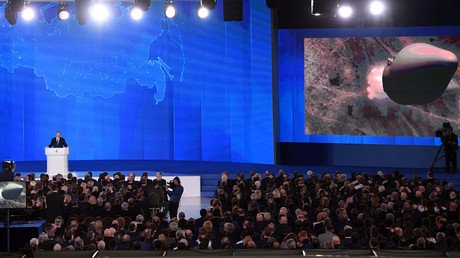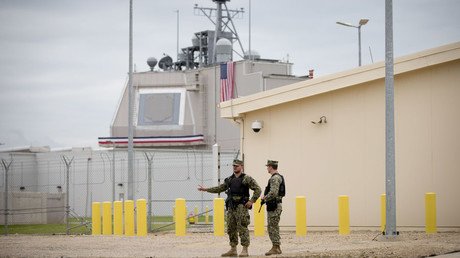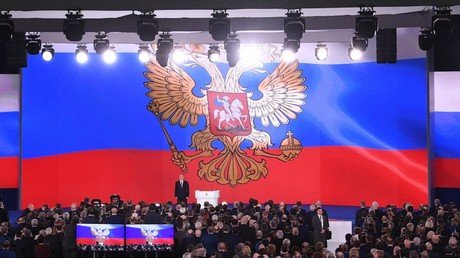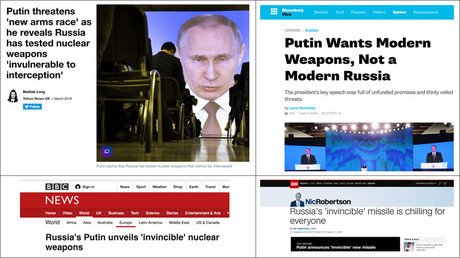‘Urgently engage with Russia’: US senators call for dialogue after new nuclear arsenal unveiled
A group of US lawmakers have called for strategic dialogue with Moscow. They feel that the matter is “more urgent” following Russian President Vladimir Putin’s unveiling of a number of cutting-edge weapons systems.
“A US-Russia Strategic Dialogue is more urgent following President Putin’s public address on March 1st when he referred to several new nuclear weapons Russia is reportedly developing, including a cruise missile and a nuclear underwater drone,” a letter signed by US Senators Edward J. Markey (D-MA), Jeff Merkley (D-OR), Dianne Feinstein (D-CA), and Bernie Sanders (I-VT) reads.
The letter, addressed to US Secretary of State Rex Tillerson, was published on Thursday. The senators stressed that while the countries have many “significant” disagreements, including alleged Russian meddling in the 2016 US elections and the “annexation” of Crimea, Moscow and Washington need to come to the negotiation table.
“Due to these policy rifts, not in spite of them… the United States should urgently engage with Russia to avoid miscalculation and reduce the likelihood of conflict.”
The lawmakers are concerned that some of the brand-new Russian nuclear weapons are not covered by the Strategic Arms Reduction Treaty, commonly known as the New START, and thus call for the agreement to be extended. The weapons in question include a cruise missile with virtually no range limit and a nuclear-powered underwater drone.
However, the letter did not miss a chance to accuse Russia of non-compliance with the 1982 Intermediate-Range Nuclear Forces Treaty (INF), and called on the State Department to address the alleged violation. Moscow and Washington have traded accusations of INF-Treaty violations for several years. The US constantly accuses Russia of developing missile systems with ranges prohibited by the agreement, without providing any specific information to support such allegations.
Moscow has its own list of complaints regarding US shortcomings in relation to the INF Treaty. These include the US drone program, and the ground placement of a naval vertical-launch system in Europe as part of the Aegis Ashore program. Russia contends that these constitute violations of the treaty. In December 2017, Putin said that Washington was apparently creating conditions to leave the accord, and said that the process of its withdrawal has actually already begun.
There had been rumors that the Russian and American top diplomats, Sergey Lavrov and Rex Tillerson respectively, may meet while they are both in Africa. However, the US State Department denied that there had been any discussion of possible bilateral talks. When asked about it, the Russian Foreign Minister said the claims that such discussions never happened are “untrue.”
On March 1, the Russian leader presented a set of advanced Russian nuclear weapons, some of which are not yet named. During his state of the nation address, Putin stressed that Russia would not need all these new weapons had its legitimate concerns been heeded by the US and its allies. “Nobody wanted to talk to us about the root of the problem. Nobody listened to us; so listen to us now!” he said.
The speech drew a hysterical reaction from the Western media and accusations of saber-rattling and starting “a new arms race,” Putin told NBC Washington was in fact to blame for it. The Russian president referred to the US decision to withdraw from the 1972 Anti-Ballistic Missile Treaty (ABM Treaty) back in 2002.
Like this story? Share it with a friend!
















